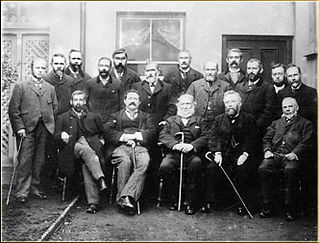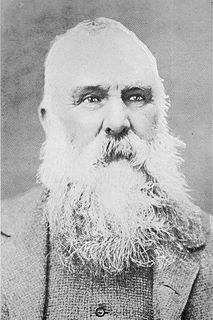The Aberdare Urban District Council was established in 1894 and covered the parish of Aberdare. Its responsibilities included public health, sanitation, roads and public works generally.

Aberdare Urban District Council was a local authority in Aberdare, Wales. It was created in 1894 as a result of the 1894 Local Government of England and Wales Act and the Aberdare Urban District Council election, 1894 saw the election of the first members of the authority. The Council existed until 1973 and replaced the Aberdare Local Board of Health which had functioned since the 1840s. Its boundaries were identical to those of the original parish of Aberdare. Initially, the Council had fifteen members but this was increased to twenty in 1906, as a result of the increase in population. There were five wards, namely Aberaman, Blaengwawr, Gadlys, Llwydcoed, and the Town Ward.
Contents
There were five wards, namely Aberaman (also known as No. 5 Ward), Blaengwawr (also known as No. 4 Ward), Gadlys (also known as No. 2 Ward), Llwydcoed (also known as No. 1 Ward), and the Town Ward (also known as No. 3 Ward). Originally, one member was elected from each ward on an annual basis, but from 1904 an additional member was granted to each ward resulting in the election of ten members, out of a total of twenty, every three years. At the intervening election, one member continued to be elected.
The community of Aberaman, Rhondda Cynon Taf was an electoral ward for much of the twentieth century, for the purposes of electing members to Glamorgan County Council and the Aberdare Urban District Council. It currently comprises two electoral wards, Aberaman North and Aberaman South, for the purposes of electing members to the Rhondda Cynon Taf County Borough Council. Aberaman North is composed mainly of Aberaman itself while Aberaman South includes Abercwmboi, Cwmaman, Godreaman and Glynhafod.
Blaengwawr was, for much of the twentieth century, an electoral ward for the purposes of electing members to Glamorgan County Council and the Aberdare Urban District Council. Blaengwawr no longer forms an electoral ward and is part of Aberaman.
Gadlys was, for much of the twentieth century, an electoral ward for the purposes of electing members to Glamorgan County Council and the Aberdare Urban District Council. Gadlys no longer forms an electoral ward and is part of Aberdare.
An election was held in April 1905. It was preceded by the 1904 election and followed by the 1906 election. The term of office of members elected at the 1902 election came to and those elected were to serve until 1908. There were contested elections in three of the five wards. [1] In both the Gadlys and Town wards the sitting members were returned unopposed after the Trades and Labour Council resolved not to run candidates. [2]
(*) denotes sitting member


